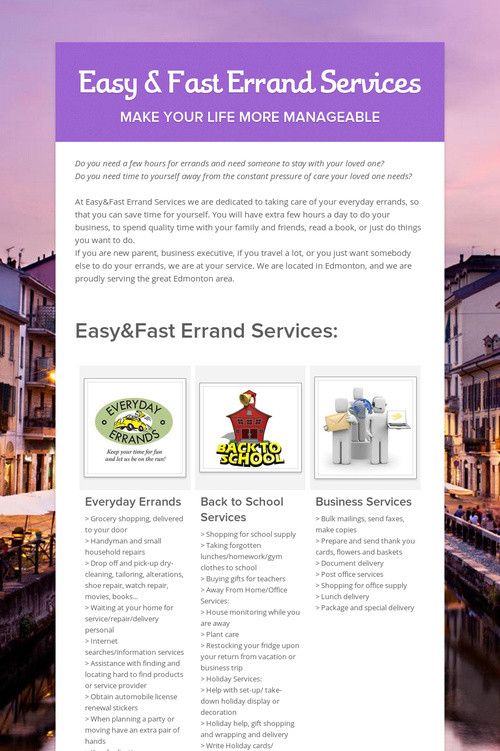There is no one-size-fits-all answer to this question, as the amount of money needed to start a business in Ohio will vary depending on the type of business you want to start. However, there are a few basic steps you can take to get started with little or no money:
1. Define your business concept and research your industry.
2. Create a detailed business plan.
3. Develop a marketing and sales strategy.
4. Find creative ways to finance your startup costs.
- First, you need to come up with a business idea that you can start with little to no money
- This may involve some research and brainstorming on your part
- Once you have an idea, it’s time to start planning your business
- Next, you will need to create a business plan
- This document will outline your business goals, strategies, and how you plan on achieving them
- It is important to have a well-thought-out business plan before starting any business, especially if you are seeking funding from investors or lenders
- Once your business plan is complete, you will need to register your business with the state of Ohio
- This can be done online through the Ohio Business Gateway website
- You will need to provide basic information about your business, such as the legal structure and contact information
- After registering your business, you will need to obtain any licenses or permits that may be required in order to operate legally in Ohio
- Depending on the type of business you are starting, there may be different licenses and permits required
- You can find out more about this by contacting the Small Business Administration or your local Chamber of Commerce/Economic Development office
- 5 Now that everything is in place, it’s time to start marketing and promoting your new business! There are many ways to do this, both online and offline (networking)
- Try using various marketing methods until you find what works best for reachin
Ohio Small Business Startup Grants
If you’re thinking about starting a small business in Ohio, you may be wondering if there are any grants or other financial assistance programs available to help get your business off the ground. The good news is that there are several Ohio small business startup grants that can help you with the costs of starting your business.
One of the most popular grant programs for small businesses in Ohio is the Small Business Administration’s (SBA) 7(a) loan program.
This program provides loans of up to $5 million to small businesses for a variety of purposes, including start-up costs. To be eligible for an SBA 7(a) loan, your business must meet the SBA’s size standards and be located in an eligible rural area or underserved market.
Another option for financing your Ohio small business startup is the State Small Business Credit Initiative (SSBCI).
The SSBCI provides funding to participating lenders in order to encourage them to provide financing to small businesses. To be eligible for financing through the SSBCI, your business must meet certain criteria, including being located in an underserved market and having gross revenues that do not exceed $20 million.
If you’re looking for grant money to help fund your Ohio small business startup, you may also want to check with your local Chamber of Commerce or Economic Development organization.
Many times these organizations have grant programs available that can help with start-up costs or other expenses associated with starting a new business.
So if you’re thinking about starting a small business in Ohio, don’t let the cost of start-up stop you from achieving your dream – there are plenty of resources available to help make it happen!
How to Form an Llc in Ohio Free
If you’re thinking about starting a business in Ohio, you may be wondering if you should form an LLC. An LLC, or limited liability company, is a business structure that can offer some benefits over other types of businesses. For example, an LLC can help to protect your personal assets from being used to pay business debts.
So, how do you form an LLC in Ohio? The first step is to file Articles of Organization with the Ohio Secretary of State’s office. You’ll need to include basic information about your LLC, such as the name and address of the company, the names of the managers or members, and the company’s purpose.
Once your Articles of Organization are filed, you’ll need to create an Operating Agreement. This document outlines how your LLC will be run and includes important information like who will manage the company and how decisions will be made.
Once you have your Articles of Organization and Operating Agreement in place, you can start doing business in Ohio!
Keep in mind that there are ongoing requirements for LLCs, such as filing annual reports and maintaining registered agent service. But forming an LLC doesn’t have to be complicated or expensive – with a little bit of planning, you can get your new business off on the right foot!
Ohio Business License
If you’re opening a business in Ohio, you’ll need to get a business license. The process is fairly simple, and the state offers a variety of resources to help you get started. Here’s what you need to know about getting an Ohio business license.
First, you’ll need to decide what type of business entity you’ll be operating as. This will determine which licenses and permits you’ll need to obtain. Once you’ve done that, you can begin the process of applying for your license.
The first step is to register your business with the Ohio Secretary of State’s office. You can do this online or in person. Once your business is registered, you’ll need to obtain a federal employer identification number (EIN).
This can be done through the IRS website or by mail.
Once you have your EIN, you can apply for your Ohio Business License online or by mail. The application fee is $50, and it must be paid with a credit card or check.
You should receive your license within 4-6 weeks after applying. If not, contact the Division of Business Services at (614) 466-4100 for assistance.
List of Small Business in Ohio
Starting a small business in Ohio can be a great way to become your own boss and achieve financial independence. But before you take the plunge, it’s important to do your research and make sure you have a solid plan in place.
To help you get started, we’ve put together a list of small businesses that are doing well in Ohio.
These businesses are all different, but they share some key characteristics that have helped them succeed.
1. They Have A Unique Selling Proposition
Each of these businesses has something unique to offer its customers.
Whether it’s a innovative product or service, or a customer experience that can’t be found anywhere else, they’ve found a way to stand out from the crowd.
2. They Know Their Target Market Well
These businesses have done their homework when it comes to understanding who their target market is and what they want or need.
They use this knowledge to create marketing campaigns and strategies that resonate with their audience.
3. They Offer Exceptional Customer Service
Customer service is often overlooked by small businesses, but it’s one of the most important factors for success.
These businesses go above and beyond to make sure their customers are happy, which keeps them coming back again and again.
Ohio Llc Registration
An LLC, or limited liability company, is a business structure that offers personal liability protection and flexibility when it comes to taxes and management. If you’re thinking of starting an LLC in Ohio, here’s what you need to know about the registration process.
To register your LLC in Ohio, you’ll need to file Articles of Organization with the Ohio Secretary of State.
The Articles must include your LLC’s name, address, purpose, and the names and addresses of its members. You will also need to designate a registered agent for your LLC. This is someone who agrees to accept legal documents on behalf of the LLC.
Once your Articles of Organization are filed, you’ll need to obtain an Employer Identification Number (EIN) from the IRS. You can do this online at the IRS website. You’ll use this number to open a business bank account and file taxes for your LLC.
Finally, you should create an operating agreement for your LLC. This is not required by law in Ohio, but it’s a good idea to have one in place as it sets out the rules and regulations for running your business. Once everything is in order, you’re ready to start doing business as an LLC in Ohio!
Starting a Business in Ohio Checklist
There are a few key things you need to do when starting a business in Ohio. This checklist will help make sure you don’t forget anything important!
1. Choose your business structure.
Will you be a sole proprietor, LLC, partnership, or corporation? Each has different tax and legal implications, so it’s important to choose the right one for your business.
2. Register your business name with the county clerk’s office and/or the Ohio Secretary of State.
You may also want to trademark your name to protect it from being used by others.
3. Get a federal employer identification number (EIN) from the IRS. This is used for tax purposes and will be required when you open a bank account for your business.
4. Open a business bank account. This will keep your personal and business finances separate, which is important come tax time!
5. Obtain any necessary licenses or permits required to operate your type of business in Ohio.
For example, if you’re selling food products, you’ll need a license from the Department of Health . Check with your local chamber of commerce or city hall for more information on what might be required in your area.
Register a Business in Ohio
Registering a business in Ohio is a simple process that can be done online through the Secretary of State’s office. The first step is to choose a business name that is not already taken and then file a trade name registration form with the county clerk’s office. Next, you will need to obtain a federal Employer Identification Number (EIN) from the IRS.
Once you have these two things, you can register your business by filling out an online application on the Secretary of State’s website. After your application has been approved, you will receive a Certificate of Good Standing which you should keep for your records.
There are many benefits to registering your business in Ohio, including personal liability protection and tax advantages.
Additionally, registered businesses are generally more respected by customers and clients than unregistered businesses. Registering your business also makes it easier to open bank accounts and get credit cards in the company’s name. Overall, registering your business is a smart move that can save you time and money down the road.
Ohio Business Search
The Ohio Business Search is a great resource for businesses in the state of Ohio. This website provides information on how to start and operate a business in Ohio, as well as resources for businesses that are already up and running. The website also offers a search function so businesses can find contact information for other businesses in their area.
Overall, the Ohio Business Search is a great tool for any business owner in the state of Ohio.

Credit: www.forbes.com
Does Ohio Require a Business License?
In Ohio, most businesses will need to obtain some type of business license from the state in order to legally operate. The specific license that your business needs will depend on the type of business you are running and where it is located. For example, a retail store in Ohio will need to obtain a different license than a restaurant.
There are several different types of licenses that businesses can apply for in Ohio, and the application process can vary depending on the license you are seeking. However, in general, you will need to fill out an application and submit it to the appropriate state agency. You may also be required to pay a fee when applying for your license.
Once you have obtained your business license, you will need to renew it on a regular basis. The frequency of renewal will vary depending on the type of license you have, but most licenses must be renewed every two years. Failure to renew your license could result in your business being shut down by the state.
Overall, obtaining a business license in Ohio is relatively simple and straightforward. As long as you know what type of license your business needs and follow the proper steps for applying, you should have no problem getting licensed and up and running in no time!
How Much Does It Cost to Register a Small Business in Ohio?
If you’re thinking of starting a small business in Ohio, you may be wondering how much it will cost to get registered. The good news is that the process is relatively simple and straightforward, and the fees are reasonable. Here’s a rundown of what you can expect:
To register your business with the state of Ohio, you’ll need to file a Certificate of Assumed Name with the county clerk’s office in the county where your business will be located. The filing fee for this document is $39, and it must be renewed every five years.
You’ll also need to obtain a Business Tax Registration Certificate from the Ohio Department of Taxation.
There is no fee for this certificate, but you will need to provide some basic information about your business, such as its type, location, and contact information.
If you plan on hiring any employees, you’ll need to obtain an Employer Identification Number (EIN) from the Internal Revenue Service. This number is used for tax purposes and is free to obtain.
Depending on the type of business you’re starting, there may be other licenses or permits that are required in order to operate legally in Ohio. For example, businesses that serve food or alcohol will need to obtain appropriate licenses from their local health department and/or the state liquor control board. Likewise, businesses that deal in firearms or explosives will need to comply with state and federal regulations regarding these items.
Overall, then, it shouldn’t cost more than a few hundred dollars to get your small business up and running in Ohio – which isn’t bad at all when compared to other states!
How Much Does It Cost to Start an Llc in Ohio?
When you’re ready to start your LLC, one of the first things you’ll need to do is file your Articles of Organization with the Ohio Secretary of State. The filing fee for this document is $99, and it can be submitted online, by mail, or in person.
Once your LLC is registered with the state, there are a few other important steps you’ll need to take to get up and running.
First, you’ll need to obtain an Employer Identification Number (EIN) from the IRS. This number will be used for tax purposes and can be obtained for free through the IRS website.
Next, you’ll need to open a business bank account in your LLC’s name.
This will allow you to keep your personal and business finances separate, which is important for both legal and tax purposes. Once you have your EIN and business bank account set up, you’ll be well on your way to starting your LLC in Ohio!
What are the Steps to Starting a Business in Ohio?
There are a few steps you need to take to start a business in Ohio. First, you need to come up with a business idea and then do some research to see if there is a market for your product or service. Next, you need to register your business with the state and get all the necessary licenses and permits.
Once your business is registered, you should open a business bank account and start working on marketing your new company!
How to Start a Business in Ohio
Conclusion
Ohio is a great state for entrepreneurs. The state has a variety of resources available for businesses, including funding and incubators. However, it can be difficult to start a business in Ohio with no money.
Here are four tips to help you get started:
1. Look for grants and other forms of funding. There are many organizations that offer funding for startups in Ohio.
Do some research to see if you qualify for any of these programs.
2. Join an incubator or accelerator program. These programs can provide you with office space, mentorship, and other resources to help you get your business off the ground.
3. Find a co-working space. If you can’t afford your own office space, consider renting desk space at a co-working facility. This can be a great way to meet other entrepreneurs and get your business started on a budget.
4. Use online tools and resources.



